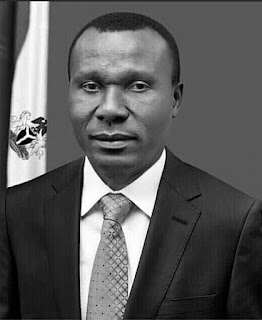THE UNCONCIOUS ADVANTAGE OF GRAFT.
Nigerian jet-fuel binge created history in the United States real-estate business news. The central personalities involved in this historic occurrence, Mrs. Diezani Alison-Madueke (former Nigerian Minister of Petroleum Resources who held the office between 2010 and 2015) and Kola Aluko, have been critically criticised for allegedly spending colossal sums of money which they got from graft in acquiring real-estates, exotic cars, jets, and yachts. It is being reported that the yacht which Beyoncé, at one time, rented for her birthday bash, was rented from Aluko. It is also alleged that he even recently auctioned one of his houses for the sum of $36M. Nevertheless, many of these properties have been seized on the orders of the Nigerian court.
While this record of graft is sterling, there is a paradox that is hardly discussed. It is of immense benefit to local content in the Nigerian Oil economy. It is what we may call the unconcious advantage of graft.
This is what happened: Diezani, Aluko and their cohorts, in the process of their scheme, to own oil assets, carried out what is now refered to as the largest transfer of energy assets from international oil companies to local companies. What this means is that domestic companies in Nigeria now control much of the country’s oil and gas resources than it has ever been. The expectations, therefore, are that this development is supposed to deliver economic gains, considering that much of the bottlenecks, characterised by the way IOCs operate, has been removed.
These are the characteristics of the advantage; in the duration of 2010 and 2015, while Alison-Madueke held sway in the Petroleum Ministry, several IOCs sold thier oil or gas fields in Nigeria and left the country, others retreated from the conventional onshore fields to offshore due to the militant attacks and the attendant disturbance that characterised the oil industries in the Niger Delta. More of local managerial factors now controls the Nigerian Oil and Gas industry on the onshore. Currently, local Nigerian oil-and-gas entrepreneurs now control 8.9% of oil production and 18.2 % of gas output.
This development is novel because in other oil-producing countries, oil and gas is controlled by the State or the global oil giants; local private energy companies are so rare that the best way to describe this development in Nigeria is UNPRECEDENTED!
But then, who are the Nigerians who now control the 8.9% of oil production and 18.2 % of gas output? The answer to this question will certainly lead to a very long chain of several issues that are quite sensitive.
Although this consequence was unintended, because was driven by green and selfishness, but then, the benefits are quite pivotal in the advancement of our national economy.


Comments
Post a Comment